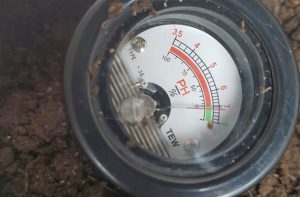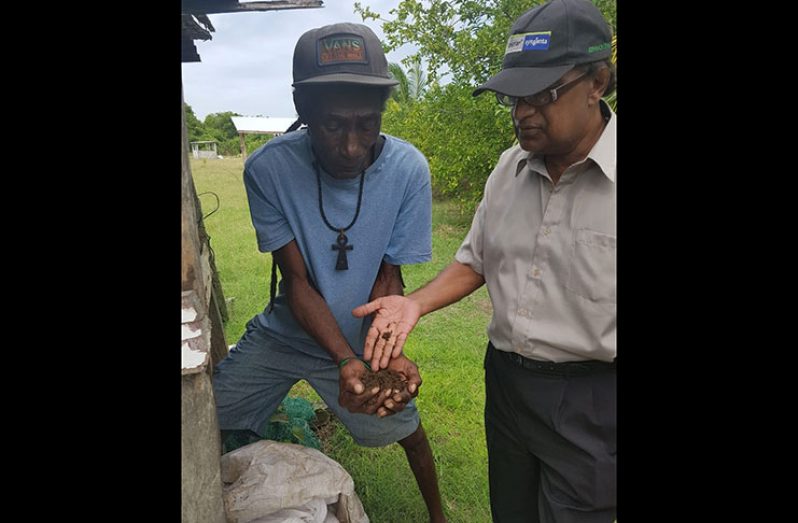HAVE you ever thought of raising worms? Not as pets, but as a way to create more compost and enrich your garden soil. This is called, Vermicomposting and it is a great way to put your waste to work and earn some extra cash.
Vermicomposting is the practice of using the California Red Earthworms (Eisenia fetida) to help break down food waste. The end product is called Vermicast and it contains water-soluble nutrients and is an excellent, nutrient-rich organic fertiliser and soil conditioner.
Vermicomposting was introduced to farmers throughout the country by the National Agriculture Research and Extension Institute (NAREI) through its extension workers. Worms were distributed to farmers and they were guided throughout the composting process.

One such farmer is 65-year-old Rudolph Trotman, who resides at Number 4 Village, West Coast Berbice. Through the Food and Agriculture Organisation (FAO)’s Disaster Risk Reduction project (DRR), a vermicompost bin was constructed in the farmer’s backyard.
The bin is comprised of stones, sand, fresh cow manure, dry grass and mesh to prevent penetration of sunlight. Trotman said he used six inches of stone followed by six inches of sand and eight inches of fresh cow mould in his bin.
The farmer then placed 200 California Red Earthworms in the bin and covered it with dried grass. “NAREI staff came and helped me set it up and then they would do follow up visits,” the farmer said while adding that he was able to harvest the organic fertiliser within eight weeks.
The worms usually multiply themselves in the bin. Trotman started with 200 in September 2018 and he now has more than 20 pounds.
“I use to plant cash crop but then people start selling the mould (animal manure) so I just stop with the cash crop and started planting citrus but I start back with the cash crop last year when I got the first Vermicast and the plants are doing great. The vegetables are leafy and they look healthy,” Trotman said.
According to the farmer, after eight weeks, the cow mould becomes powdery and it has a pH of 7.1. “Vermicast is amazing. Everybody who I give it to had nothing but good things to say and all of them what to try it.”
Having seen the benefit of Vermicast, Trotman now plans to invest in another bin. This will aid him in raising more worms and producing more vermicast to sell to the market. “I want to do my own label and package the Vermicast and sell it to the market because it’s good stuff and it’s organic too. I will sell the worms too because they multiply fast,” he said.
Vermicompost was introduced because farmers have been planting on the same plot of land over and over, and they have been using synthetic fertiliser.



.jpg)









